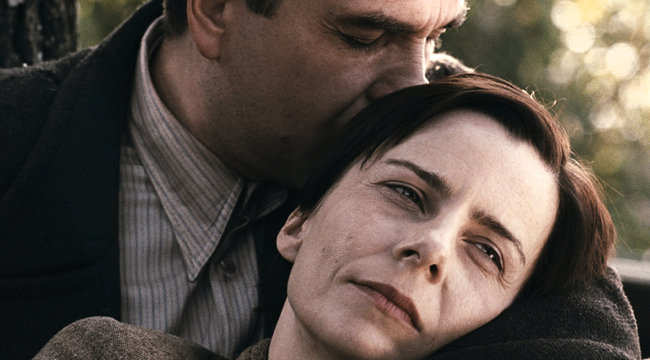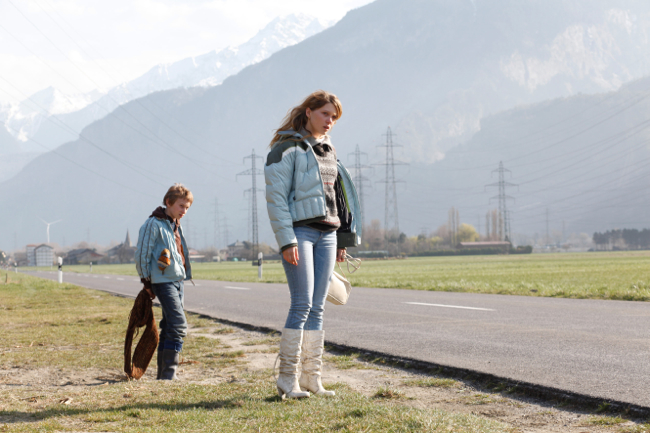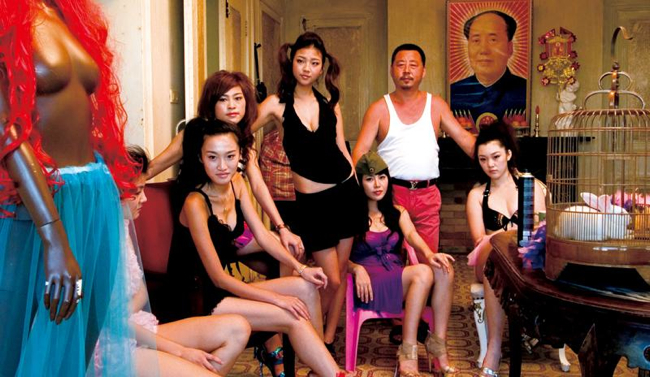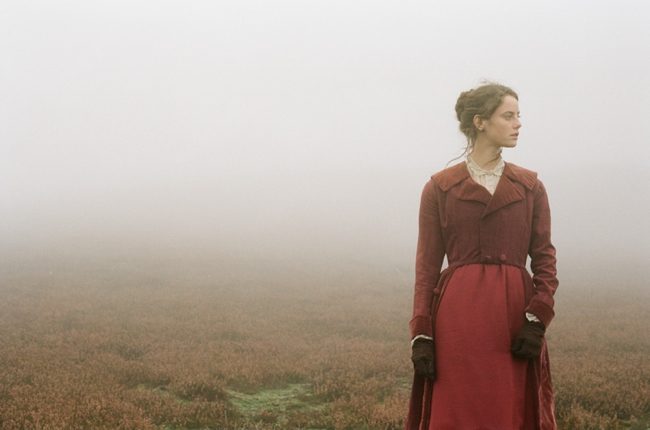HKIFF 2012: Day 3 Dim Sum Reviews: Rose, Sister, Wuthering Heights & more

My third full day at HKIFF 2012 proved to be another exceptionally strong one, and again I managed to take in four films, all from different countries. Below you can check out my brief thoughts on each of them, although as none have been reviewed on the site previously, I allowed myself to go a little longer than usual.
Day 3 (24 March)

Rose (dir. Wojciech Smarzowski, Poland)
Showing as part of the festival's Poland In Close Up segment, this is a grim story of survival in what used to be East Prussia in the years after WWII. With the Poles, Germans and Russians all vying for ownership of the Masuria region, loyalties are always in question and nobody's past stays secret for very long. Our eponymous heroine is a Polish farmer, clinging desperately to her small patch of land after the death of her German husband. Sadly it is not only her property that is repeatedly ravaged, but with the arrival of Taseusz, a Polish veteran with an equally tragic past, a glimmer of hope exists for them all. Incredibly strong performances by Agata Kulesza and Marcin Dorocinski keep us completely invested in this brutal story, unflinchingly told by Smarzowski. Perhaps not the most appropriate film with which to kick off a sunny Saturday morning of filmgoing, it was nevertheless an impressive piece of work.

Sister (dir. Ursula Meier, France)
I had seen, and very much enjoyed, Meier's debut Home, and so was very keen to catch her follow-up, appearing here in Hong Kong soon after its debut at last month's Berlinale. Her second feature again looks at a dysfunctional family surviving on the fringes of a richer, more developed world and how they must adapt in order to survive in a community that is leaving them behind. 12-year-old Simon (Kacey Mottet Klein) lives with his older sister, Louise (the wonderful Lea Seydoux) in a rundown estate at the foot of an affluent ski resort. Each day Simon ascends the mountain and pilfers whatever designer ski gear he can, before selling it for a fraction of the cost to other kids in the neighbourhood. He makes enough to support the two of them, but it is not long before their reckless lifestyle catches up with both of them, and long buried truths are exposed, putting increasing strain on their relationship. Veering from playful to desperate, Sister might even be better than Meier's debut and certainly marks her out as a filmmaker with a unique and intriguing perspective on class, family and society in decline.

Sauna On Moon (dir. Zou Peng, China)
Unlikely to pass the censors and get a release north of the border, Peng's beautifully shot film uses a fragmented narrative to tell the story of the myriad beautiful women who work in a Guanzhou massage parlour. Situated in Zhuhai, just over the border from the gambling Mecca of Macau, the sauna must constantly adapt and change its business model to draw in the punters in a ferociously competitive marketplace. Refreshingly free of any gangland cliches or conceits, Peng's technique is almost fly-on-the-wall in the way it steps back from these sex workers and their firm but fair managers, to observe rather than judge their lives, troubles and dreams for the future. Whether these young women are arrested, get married, have children or simply continue to grind out a living, Peng does a fascinating job of remaining honest while keeping things largely sleaze-free.

Wuthering Heights (dir. Andrea Arnold, UK)
I had received a number of conflicting reports about this one, but resolved to see it for myself on the big screen with a festival audience and it proved a surprisingly rewarding experience. I suddenly came to the realisation that I had never actually seen an Andrea Arnold film before, despite being very aware of her two previous films, Red Road and Fish Tank. Emily Bronte's classic novel was something I had also not read, but I had fond memories of the Lawrence Olivier/Merle Oberon film (not to mention Monty Python's hilarious rendition by semaphore). When Arnold's version began I was immediately surprised to discover the film was shot handheld in full frame, but after a few minutes I completely embraced this seemingly confrontational and deliberately anachronistic approach. As a fan of Cary Fukunaga's recent reworking of Jane Eyre, I remained unprepared for just how bold and experimental Arnold's take would be, from the decision to make Heathcliff black, to the use of incredibly strong language, to its so-incredibly-realistic tone that any lingering teenage memories of this being stuffy Victorian trash written to make young girls go giddy immediately evaporated - or rather were trampled into the mud on the rain smattered moors. At times the film reminded me of Bela Tarr's The Turin Horse but without its patience, at others Steven Spielberg's War Horse, but without its desperation for universal acceptance. Instead Wuthering Heights feels like it was filmed on the fly by a skilled yet petulant young woman with a distain for literature, but deep down still harbours an appreciation for the poetry of tragic romance. And I mean that as a complement.

Do you feel this content is inappropriate or infringes upon your rights? Click here to report it, or see our DMCA policy.






